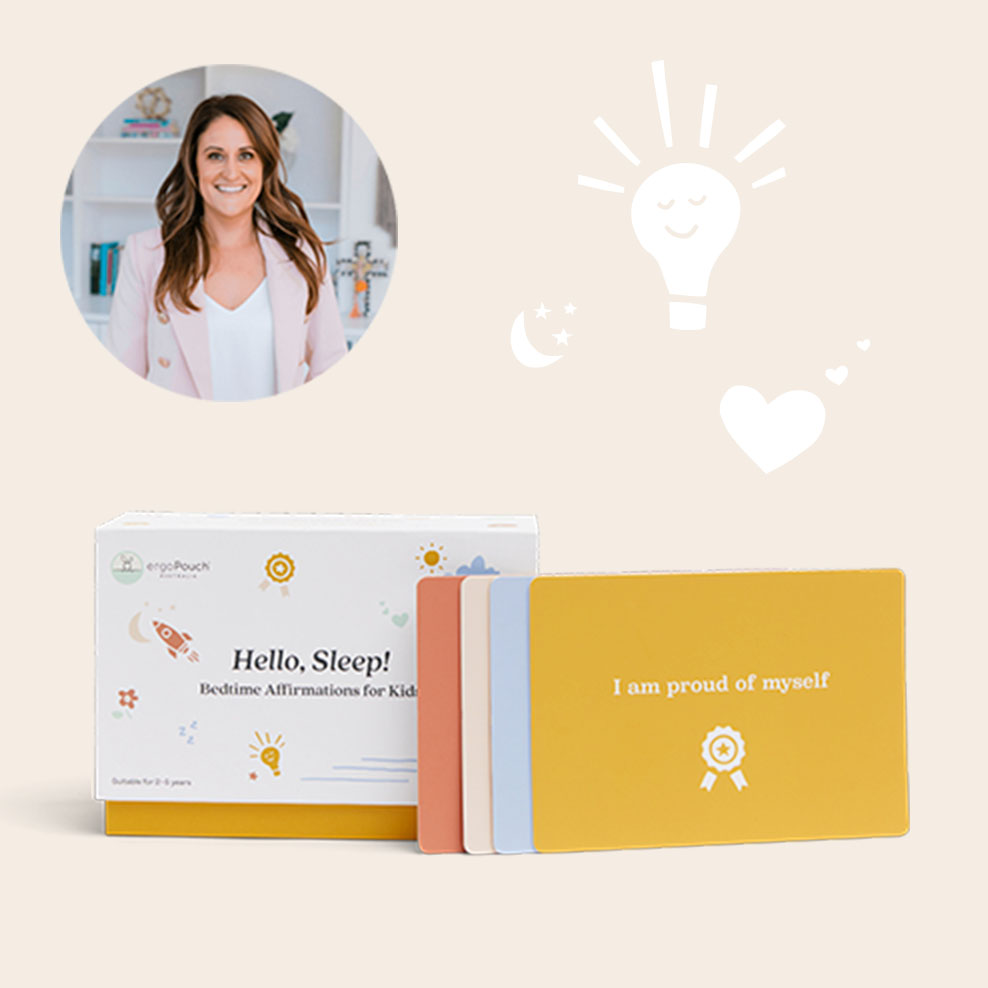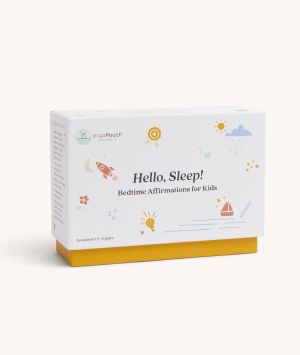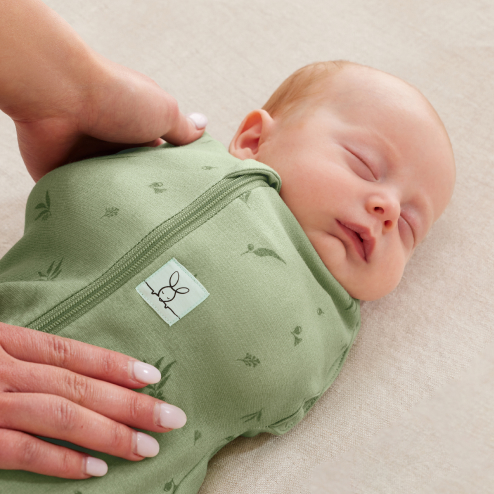What are affirmations and why should you be using them with your kids?
09 March 2022 Toddler Sleep Preschooler Sleep Product InformationThe following article has been written for ergoPouch by registered paediatric psychologist, Amanda Abel (BsocSc, BAppSc(Psych)(Hons), MAPS, MAAPi). Amanda practices in Melbourne, Victoria at the Centre for Child Development.
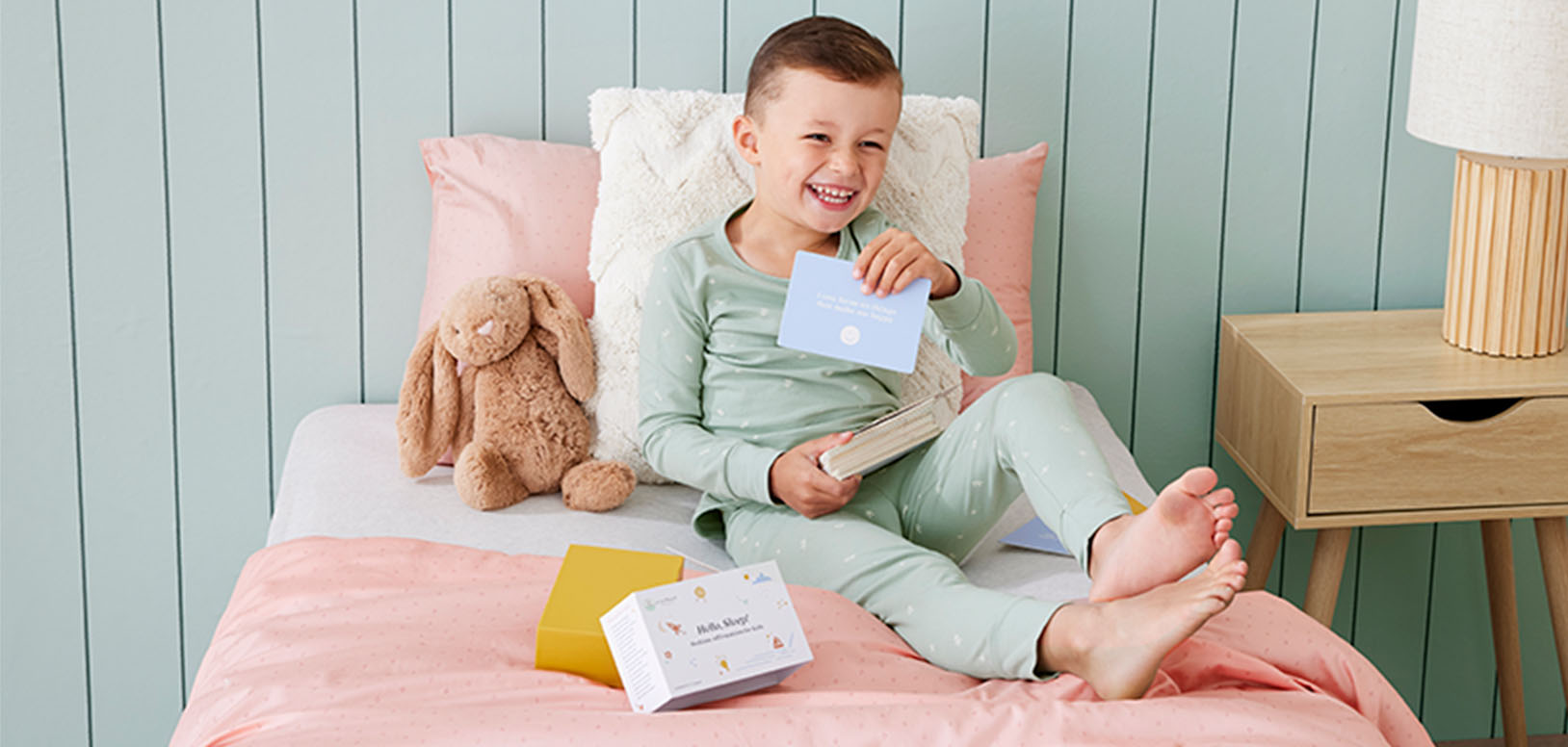

How can we do this? As parents, providing a secure attachment relationship with our children, along with approval and support, the foundations of self-esteem can be formed in our kids. Our self-esteem is also impacted is by the way we talk to ourselves - our ‘self-talk’. Believe it or not, we make about 55,000 self-talk utterances each day – with about 75% of those being counter-productive! Self-talk is the ‘voice’ in our head - positive self-talk acts encouragingly while the negative voice fuels fearful behaviours and anxieties. In my clinical experience I’ve seen how quickly children mimic the negative self-talk of others and adopt the critical comments that parents and teachers make about them, transforming these into their own negative self-talk. You’ve probably seen the Peggy O’Mara quote floating around that says “the way we speak to our children becomes their inner voice” – it can be heartbreaking to see children who habitually use negative self-talk go on to show elevated symptoms of anxiety and depression later.
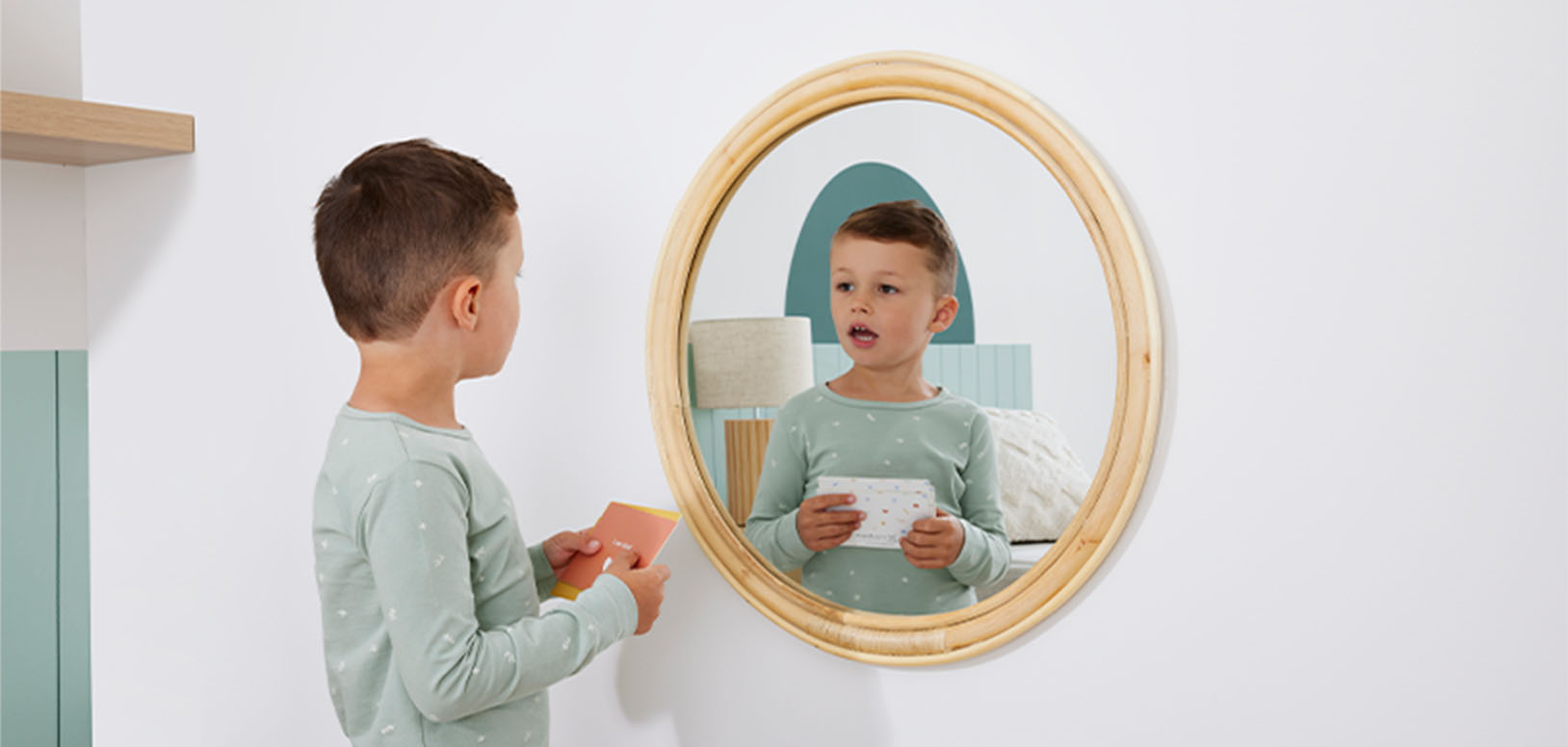
1. They provide an avenue for challenging negative thinking habits - which is often our first step in treating (and preventing!) social skills difficulties, anxiety and depression in children.
2. Affirmations provide a chance for a child to think and say kind and positive comments about themselves, fostering their self-esteem.
3. Families can form healthy rituals around affirmation use – such as using affirmation resources like books and cards at bedtime, setting up the day with an affirmation at breakfast or on the way to school, or completing affirmation worksheets in the lead up to stressful situations. All these rituals provide the opportunity for a regular dialogue around emotions and positive psychology.
4. Following on from point 3 (and because there can never be enough support for encouraging emotion-related talk in kids!) research has shown that children who are exposed to more frequent emotion-related conversations as toddlers engage in more frequent talk about emotions when they’re 2 years of age. They have even been shown to have an increased ability to recognise emotions at 6 years of age . Comfort and knowledge around talking about emotions is essential for self-regulation and as parents sometimes we need a tool to help us with starting these conversations and affirmations can certainly provide that ‘in’ and the structure to make it easier.
If all of this is resonating with you, but you’re stuck for ideas about how to facilitate your child’s self-esteem, try these ideas:
- Start the day with a positive statement about yourself and encourage your children to follow. Modelling the use of affirmations and general positive self-talk statements that are correcting, coping, reinforcing or goal-directed are crucial to a child’s positive self-talk development.
- Use resources like affirmation cards or books to slot into your night-time routine – this can be a great way to decompress emotions at the end of the day, and target sleep difficulties as you can use positive statements centred around sleep.
- Throughout the day, focus on your child’s strengths by making comments like “wow, you’re such a kind person sharing with your brother like that”.
- Praise your child’s effort rather than their abilities. Substantial psychological theory suggests that when children focus on the importance of their inherent ability, they may become afraid of failure and are more likely to underperform, give up, worry, or avoid difficult tasks. Effort-based self-talk like “I’ll try hard” or “I can do my best” encourages children to try their best – a skill they need for perseverance and ‘grit’.
So, it’s quite clear that as parents and caregivers, we have a huge responsibility to foster the self esteem and emotional growth of our kids. If we can encourage the use of positive strategies to build self-esteem, we can effectively set up our children for mental health in the future. Modelling appropriate self-esteem behaviours and focussing on the positives of your children is a great place to start and if you feel like you need specialised guidance with building your child’s self-esteem, seek professional help.
You can watch our video on how affirmation cards for kids helps to manage bedtime emotions - this is a great discussion on teaching toddlers and preschoolers resilience and confidence.
Amanda Abel
Paediatric Psychologist
Registered paediatric psychologist, Amanda Abel (BsocSc, BAppSc(Psych)(Hons), MAPS, MAAPi). Amanda practices in Melbourne, Victoria at the Centre for Child Development.

